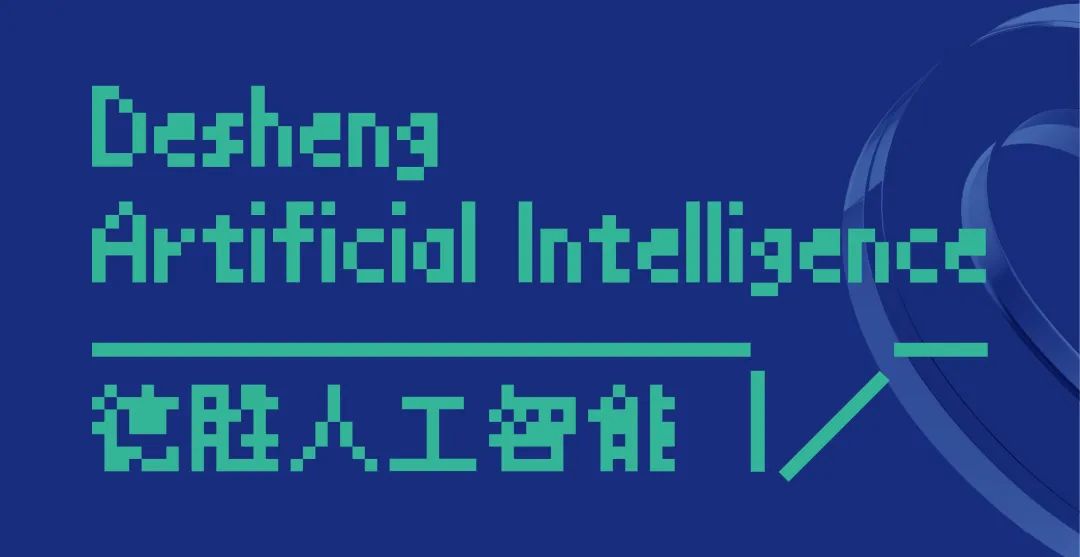
Deepseek has emerged, refocusing the world’s attention on the field of AI. In today’s rapidly developing artificial intelligence landscape, how can Desheng better engage with this cutting-edge technology? What “magic” does Desheng’s AI classroom hold?
Today, let’s explore the answers from the AI curriculum at Desheng School in Shunde (Elementary Division) — from “Conversational Xiao Ai Robot” to “Designing Intelligent Medicine Dispensers”, from “Experiencing Image Recognition” to “Programming Optimization Algorithms”, the children here are freely exploring the world of AI as “future innovators”.

01
Deep Integration: Desheng AI Curriculum Leads the Way

Artificial intelligence is the forefront of education, and Desheng’s AI curriculum leads the region, being the first to integrate AI courses into the nine-year compulsory education system. Combining the growth characteristics of students, it constructs a spiral curriculum system from elementary to high school, allowing students to learn by doing, using, and creating, through practical activities to feel, understand, and master the concepts, principles, methods, and skills of artificial intelligence, empowering students to use AI to solve real problems.
At Desheng School in Shunde (Elementary Division), learning AI courses enables children to possess the vision to discover problems, the logic to deconstruct problems, the ability to break traditional thinking, and the responsibility to use technology for good, transforming from passive knowledge recipients to proactive explorers and innovative “little scientists”.
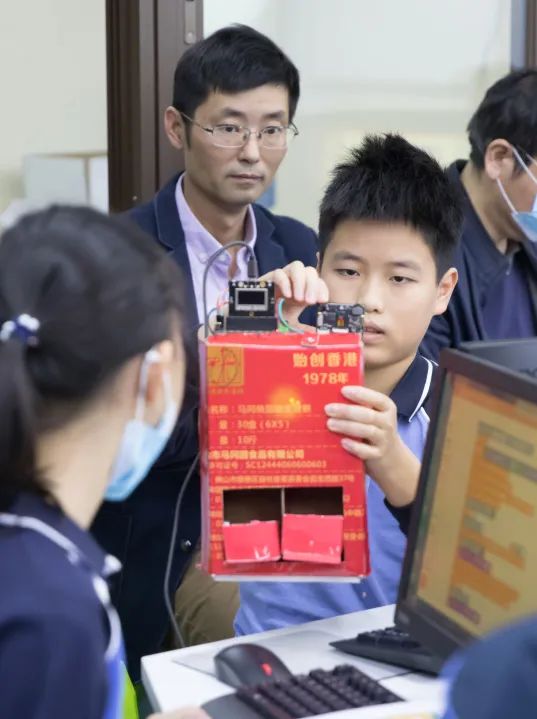
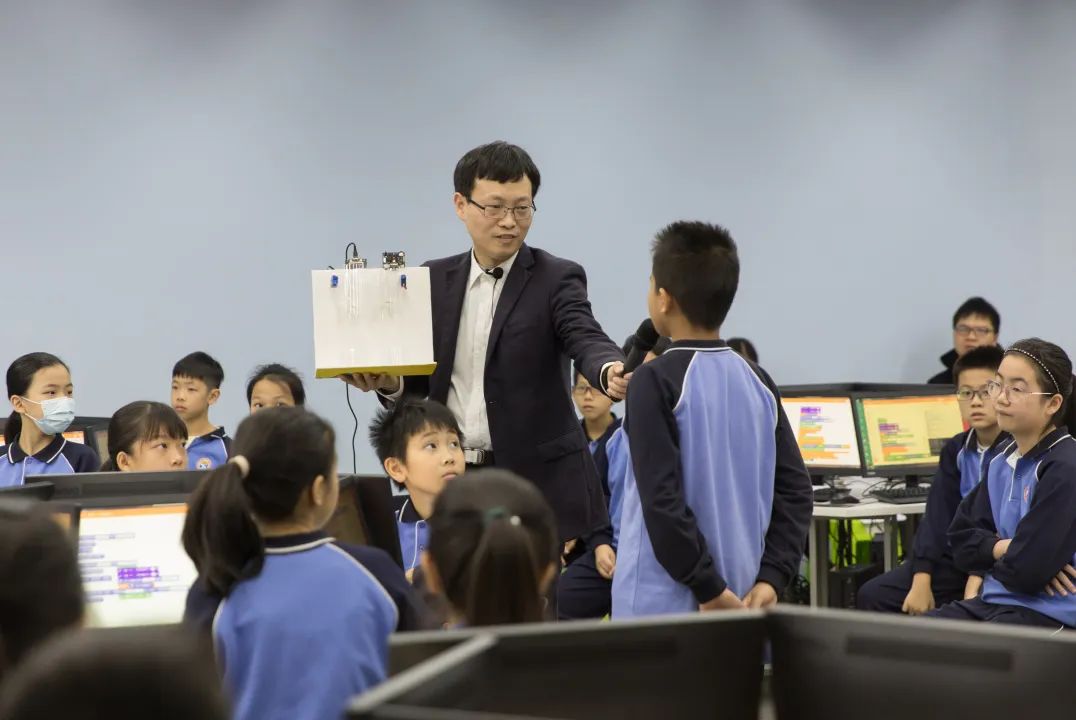
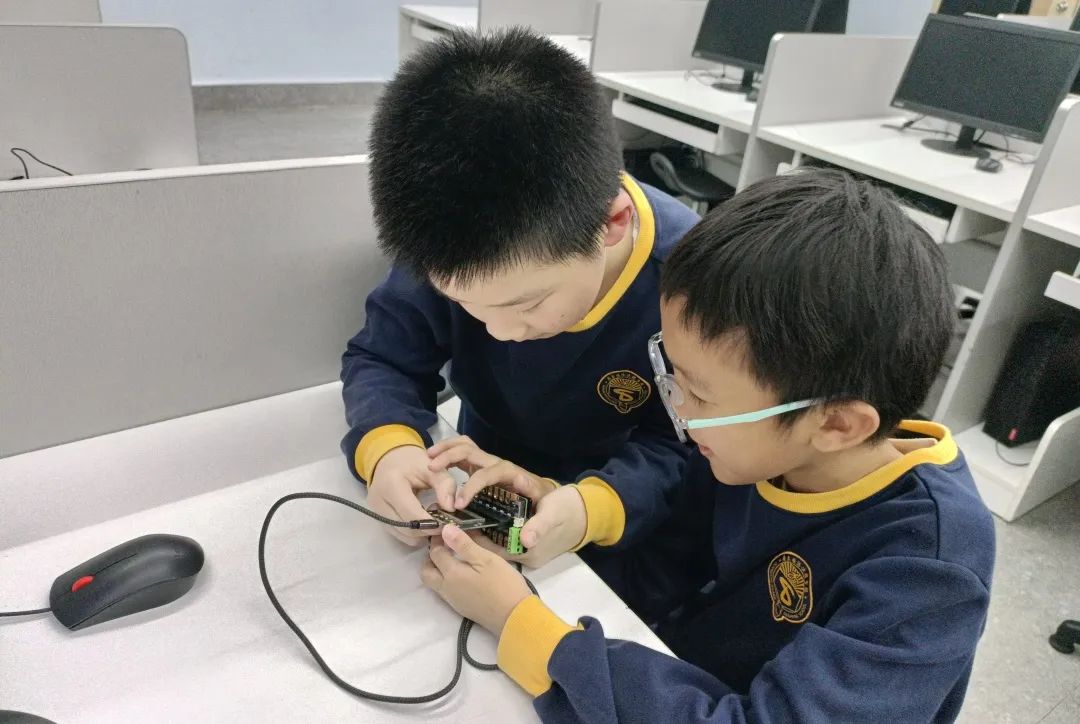


02
Smart Creative Classroom: Hands-on Practice to Bring Imagination to Life

“What type of soil is best for growing tomatoes?” “What are the differences in soil properties?” With these questions, sixth-grade students explore in the AI interdisciplinary classroom. They visit farms to interview farmers, collect soil samples, measure soil characteristics through experiments, and continuously cross-validate to obtain optimal parameters, then use machine learning algorithms for soil prediction, ultimately finding the best soil type for tomato cultivation.
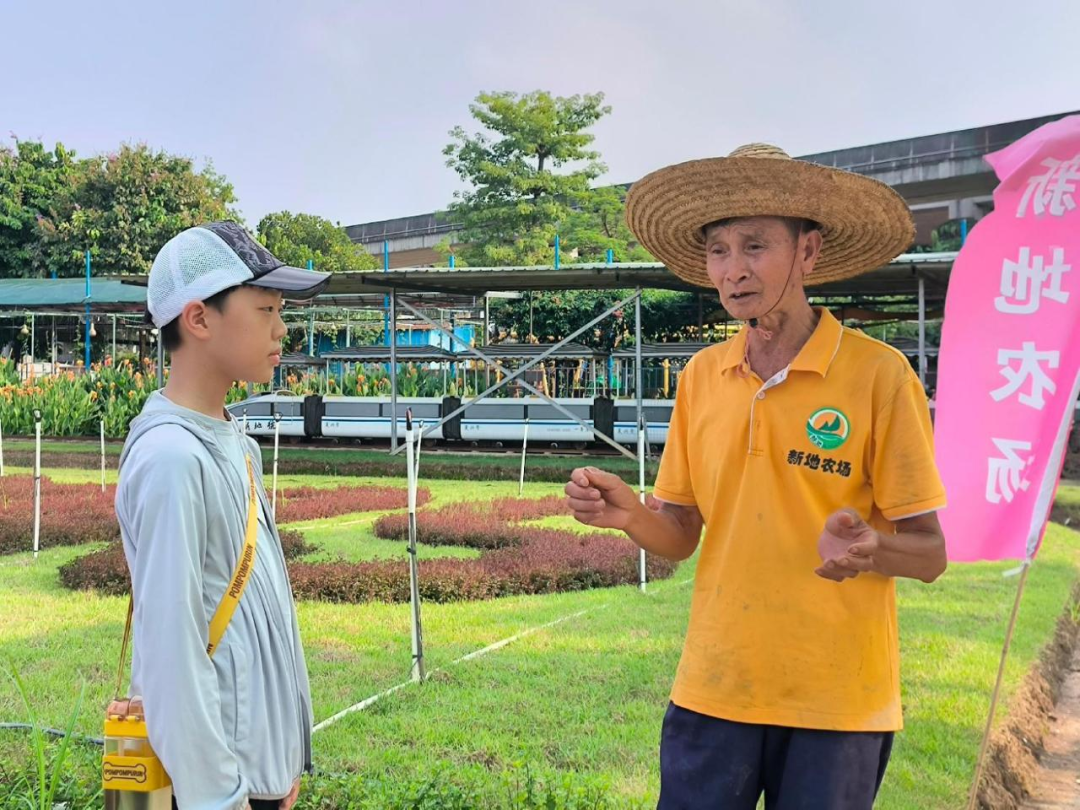
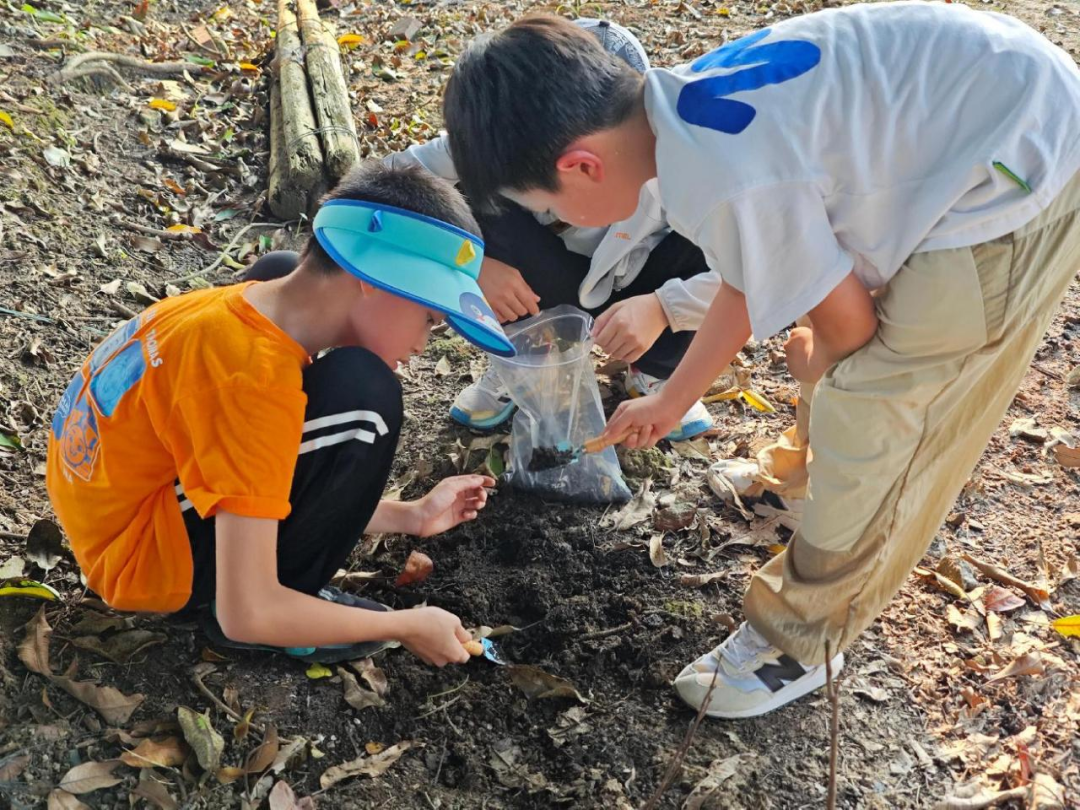
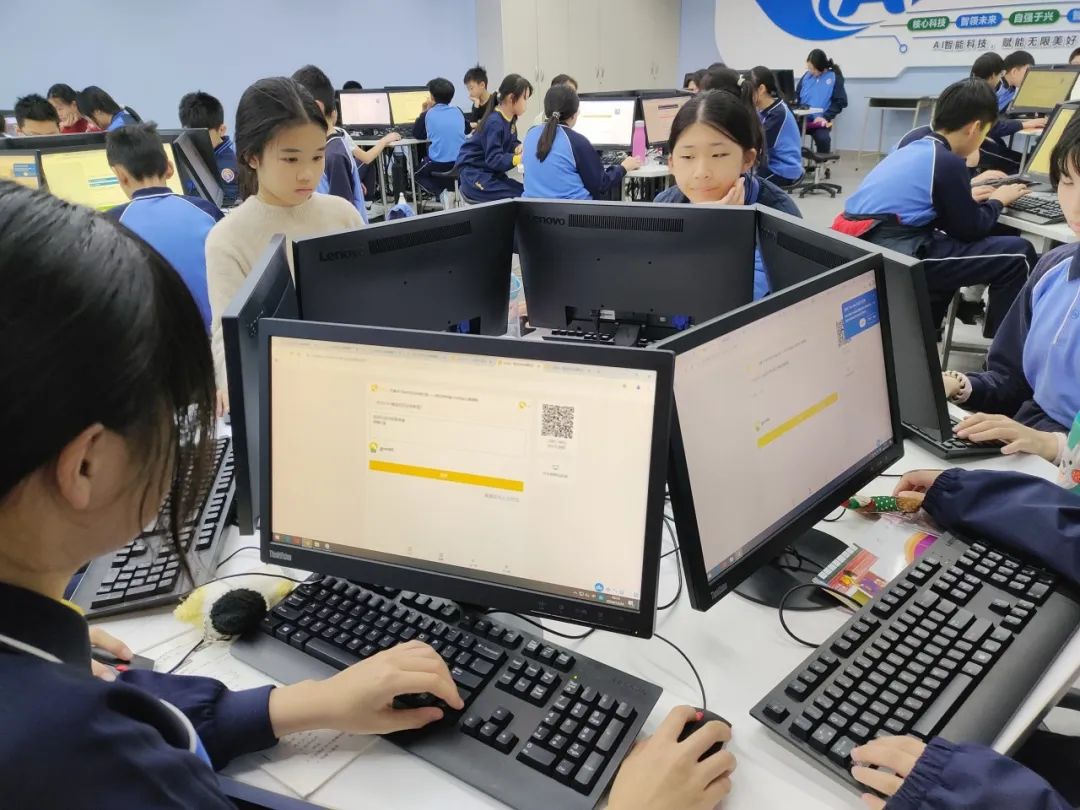
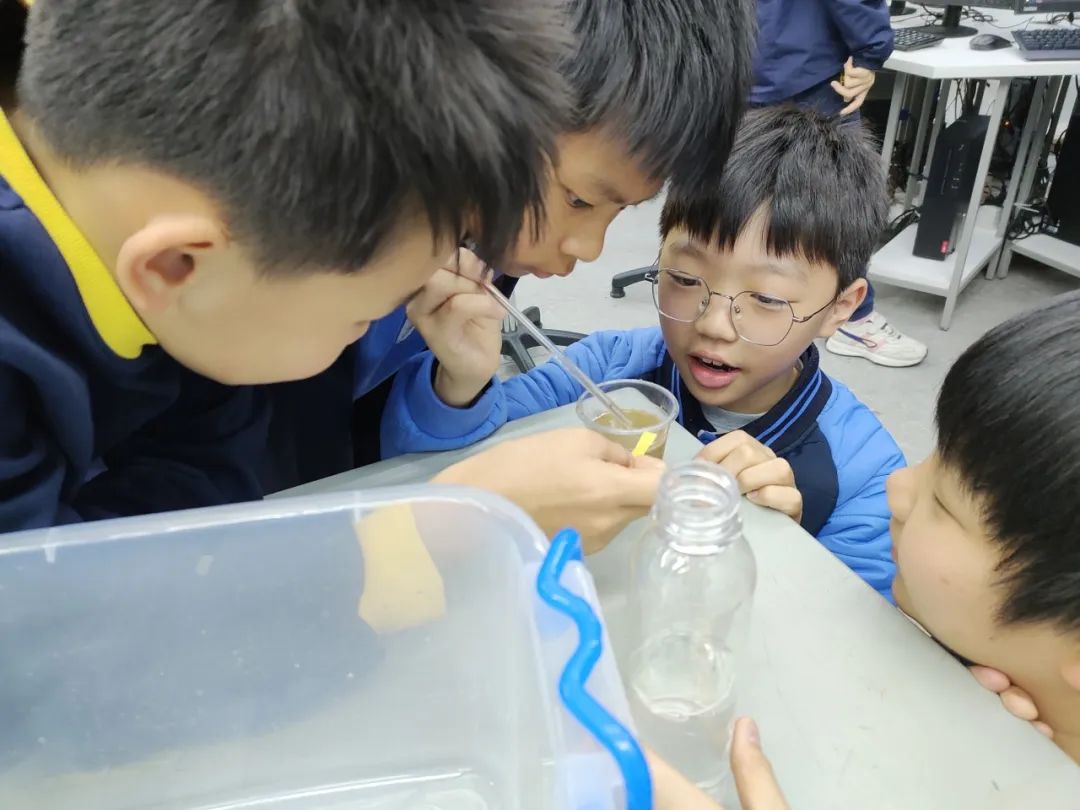
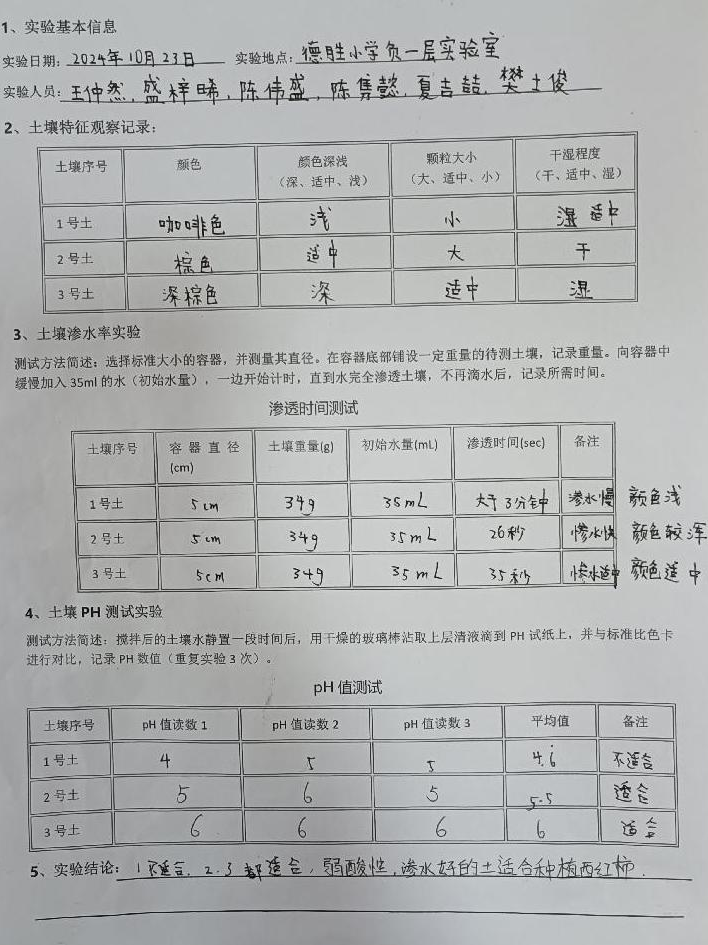
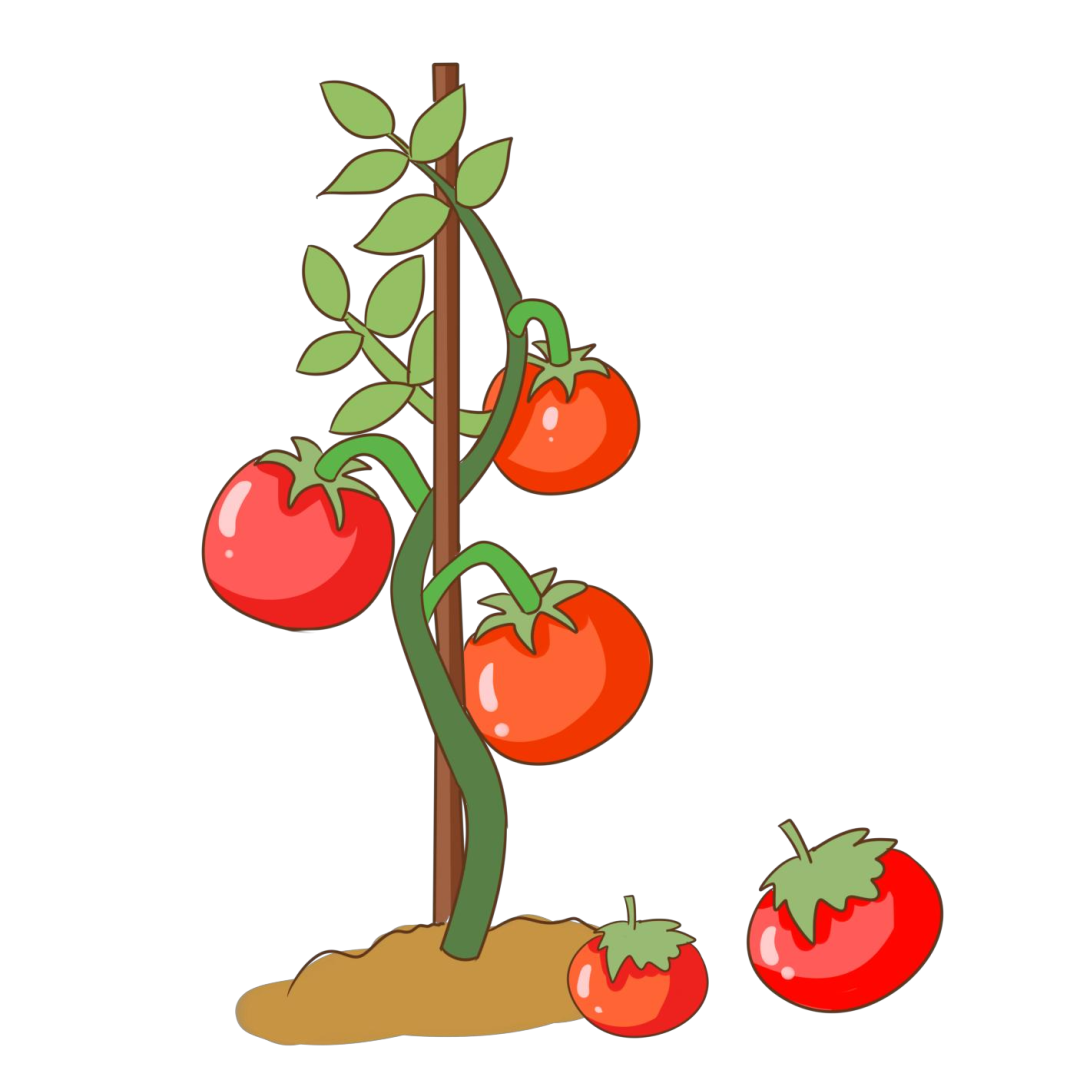
In elementary AI classrooms, there is no tedious theoretical piling, only vibrant scenes of “learning by doing, using, and creating”. Through an interdisciplinary education model, students’ creativity and practical abilities are stimulated. The school has abandoned traditional dull theoretical teaching, allowing students to learn knowledge in science, technology, engineering, arts, and mathematics (STEAM) through hands-on practice, transforming abstract theoretical knowledge into practical operations through project-based learning, thereby cultivating problem-solving abilities and innovative thinking.
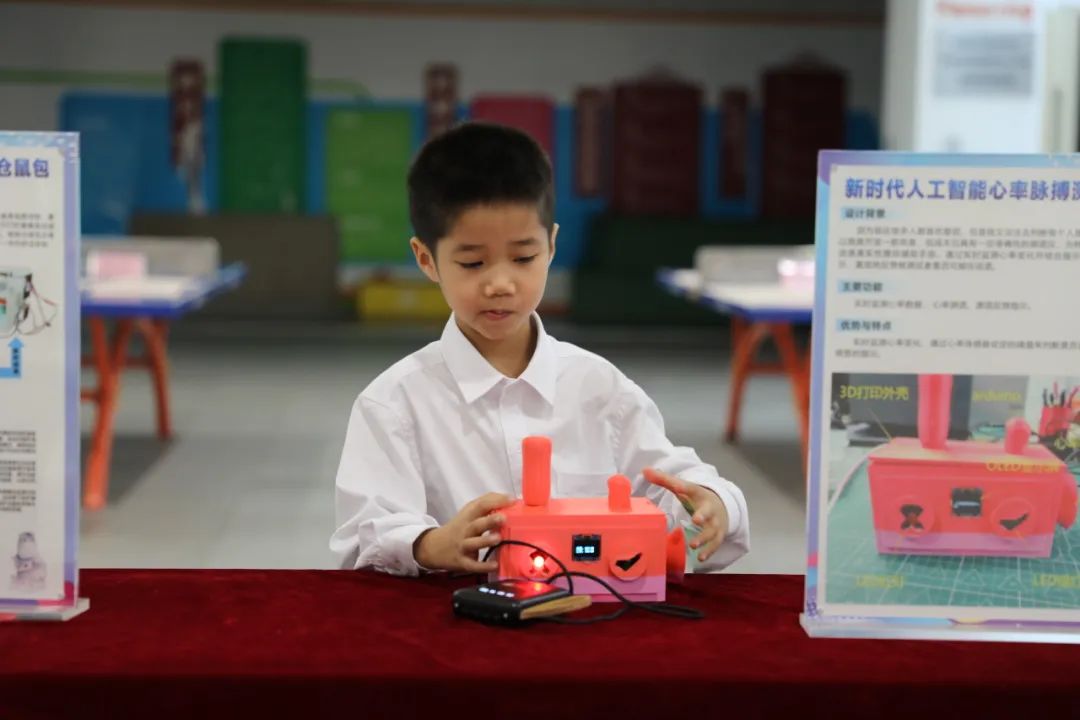
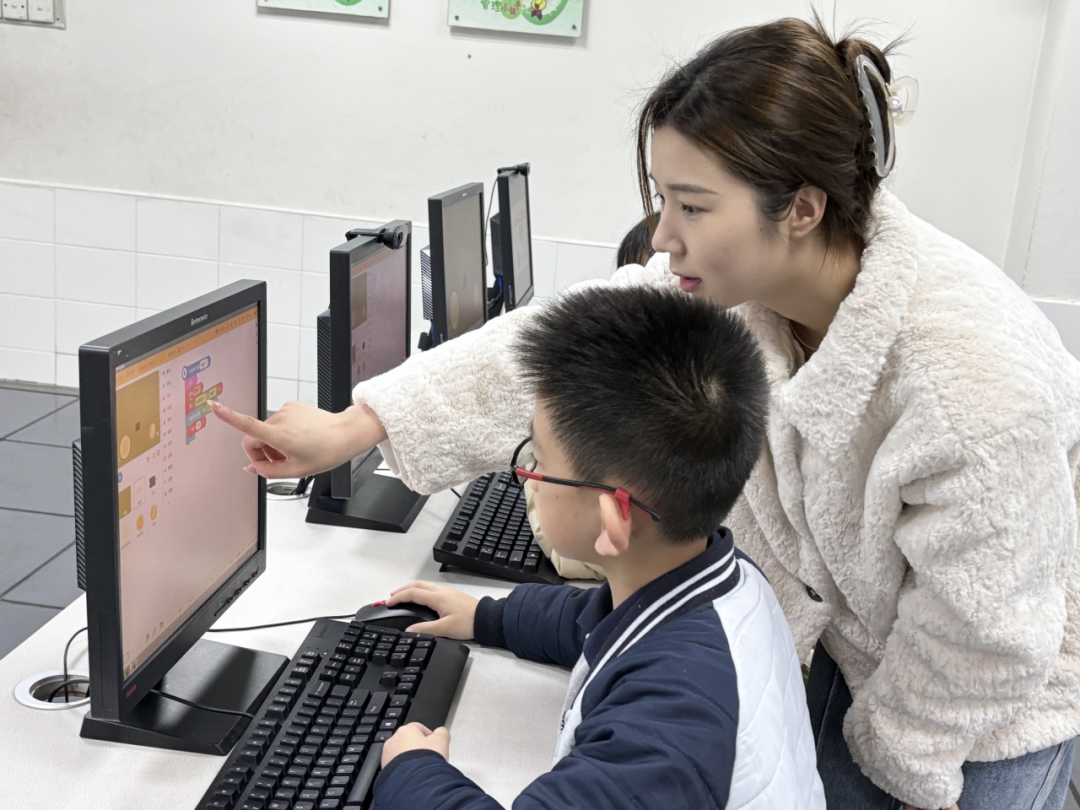
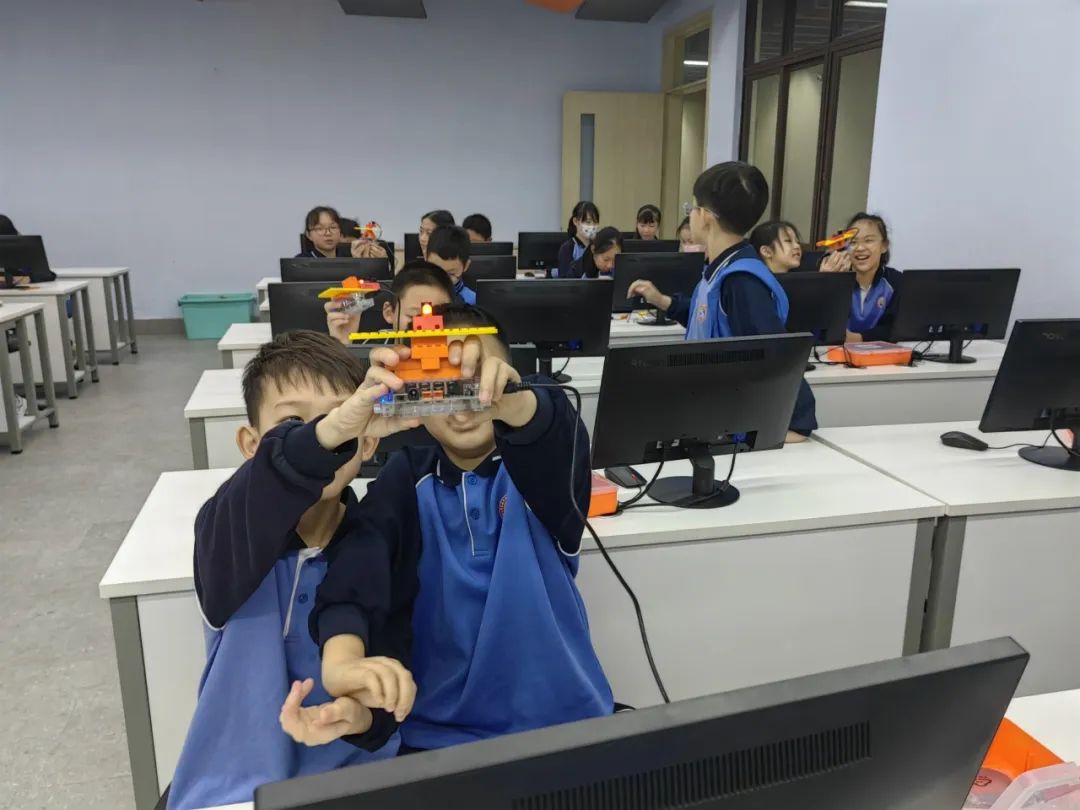
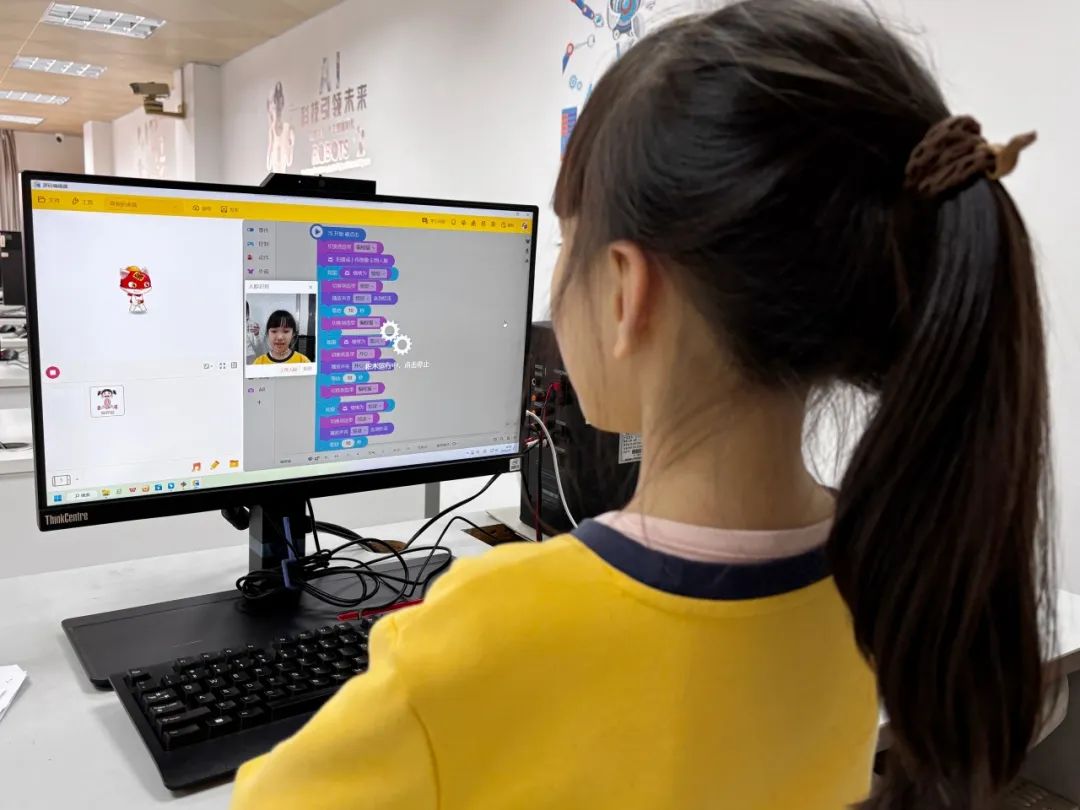
Lower Grades:
In the “Magic Light” course, children design light-sensitive curtains using light sensors and compose melodies with buzzers, where technology and art collide to create sparks.
Middle Grades:
Transforming into “little cashiers”, they implement product scanning and checkout through programming; using Arduino to create smart doorbells, allowing hardware and code to “communicate”.
Upper Grades:
Challenging the “Voiceprint Intelligence” project, analyzing sound waveform characteristics, developing voice control systems; even using KNN algorithms for soil “health checks”, contributing to smart agriculture.
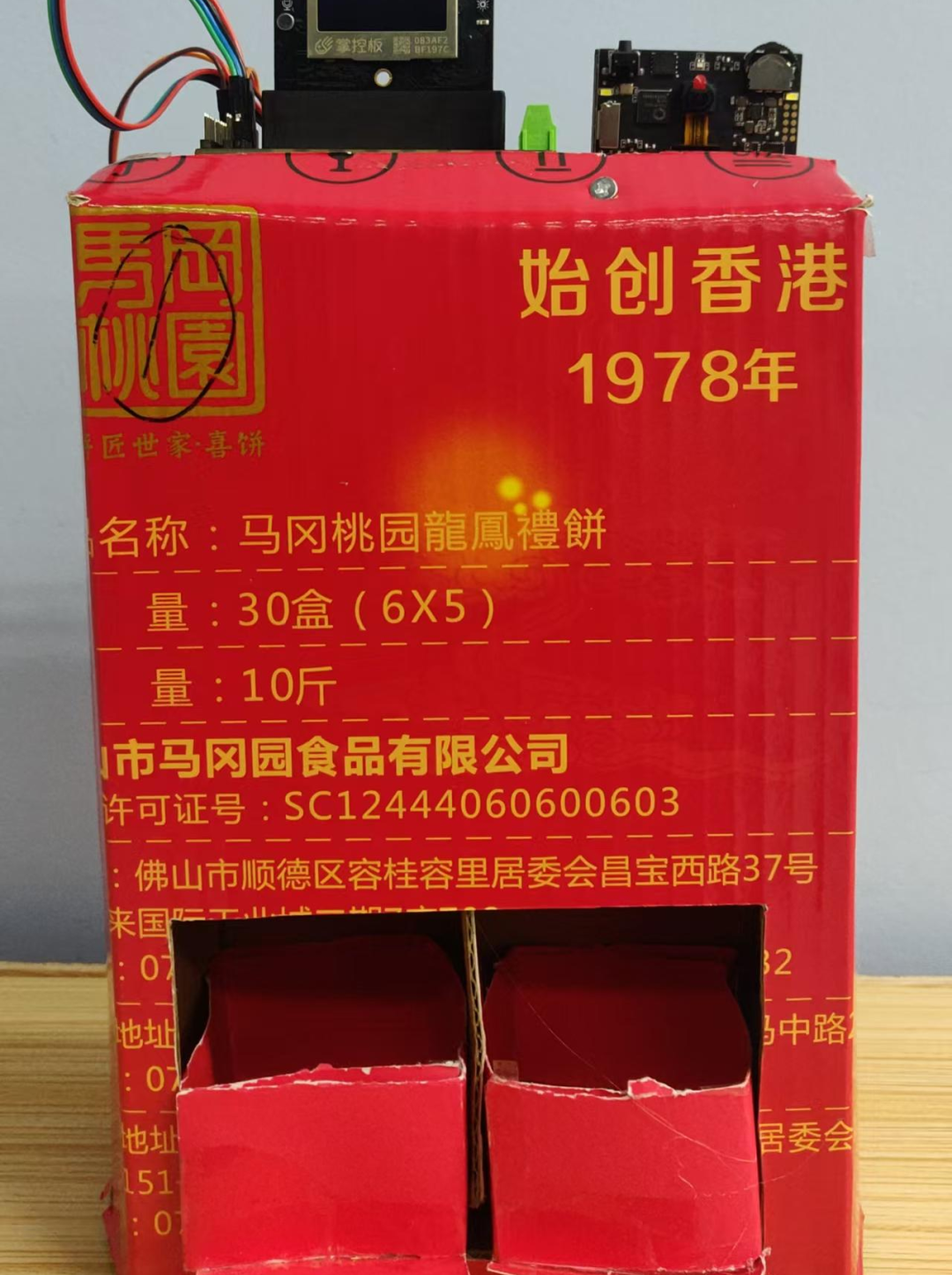
Intelligent Medicine Dispenser for the Elderly
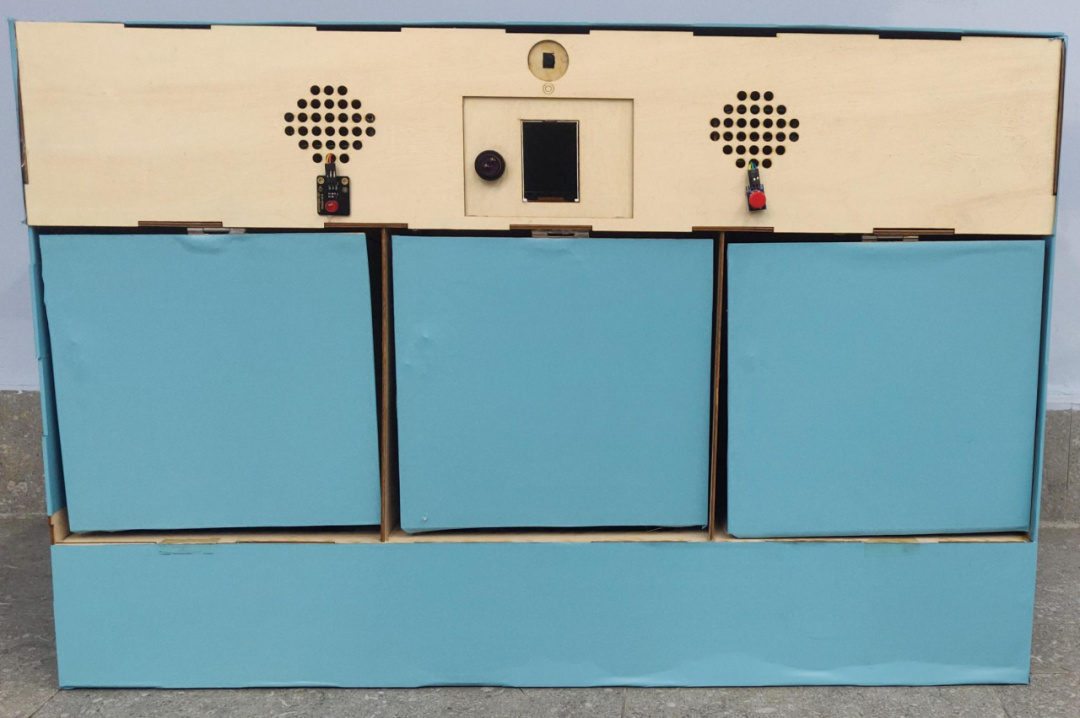
Smart Recognition for Lost Items on Campus
Classification Claim Box
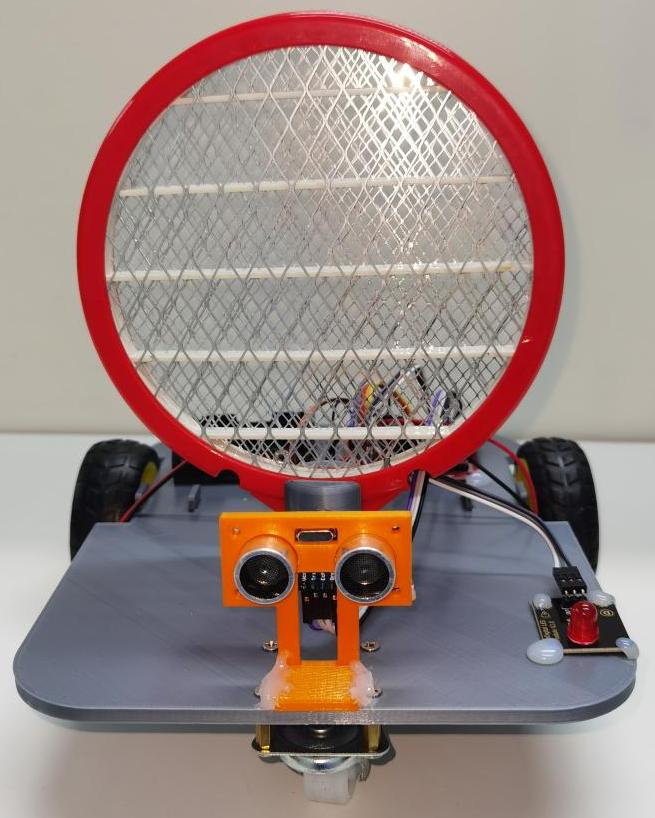
Smart Mosquito Killing Vehicle
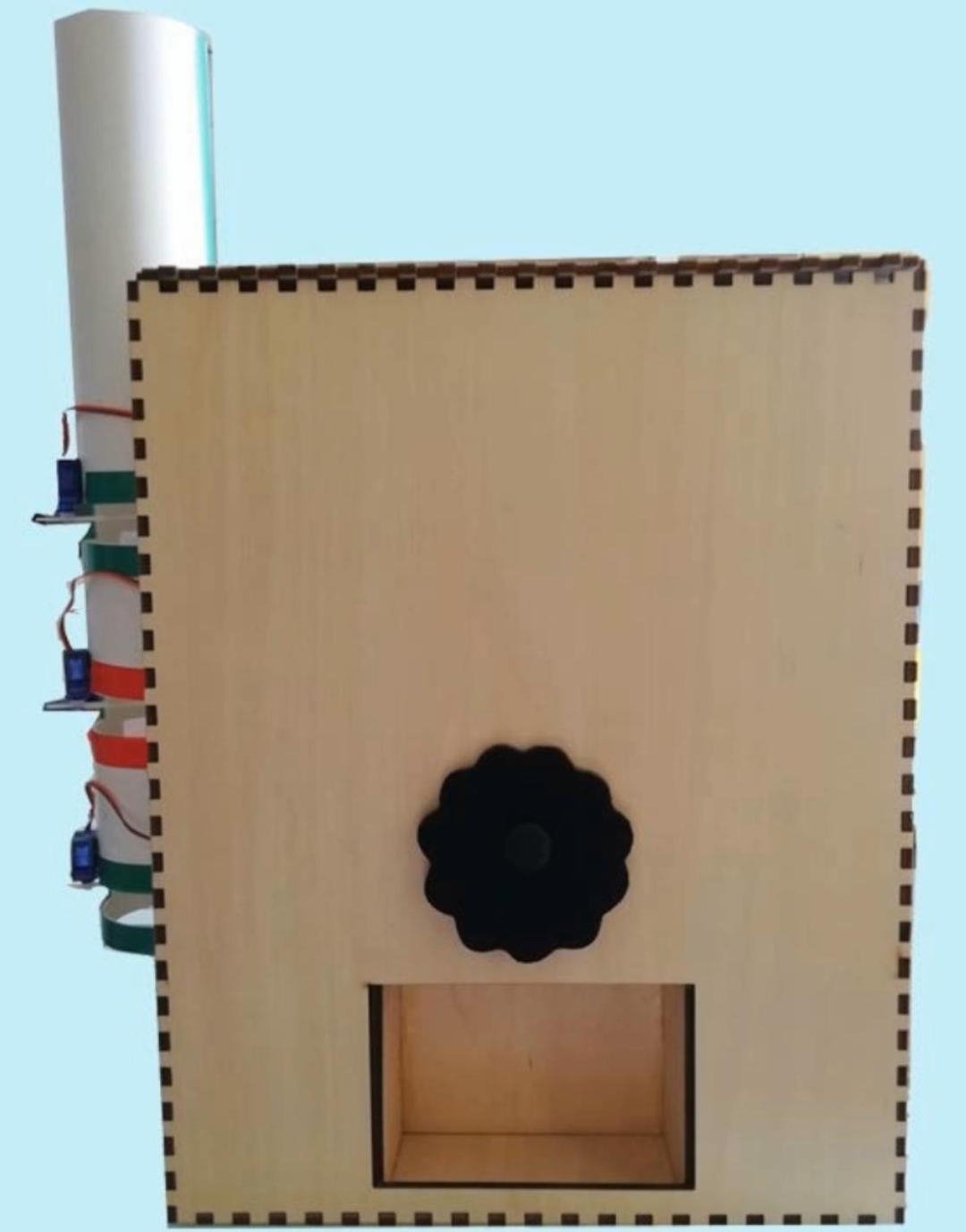
Smart Beverage Machine
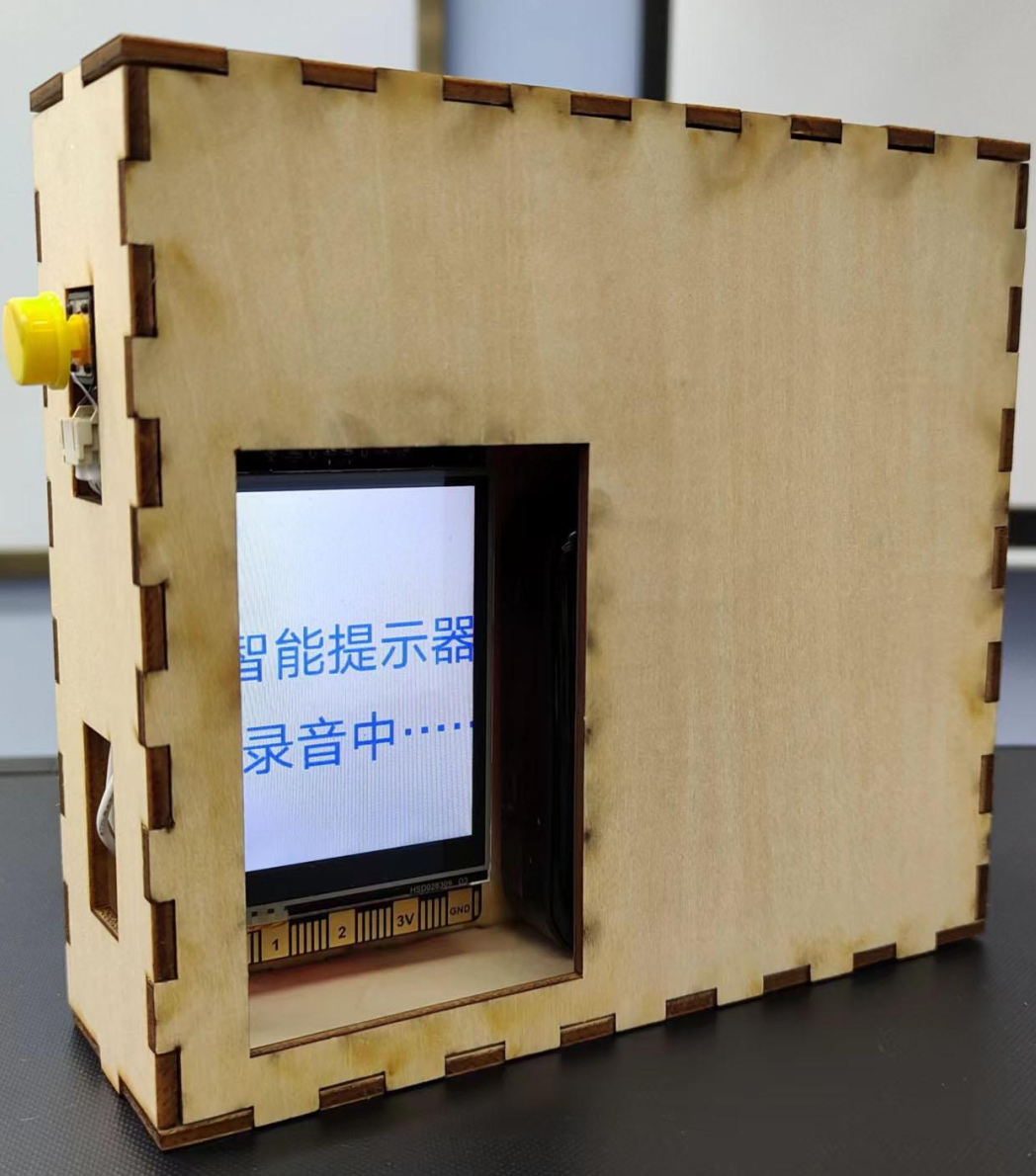
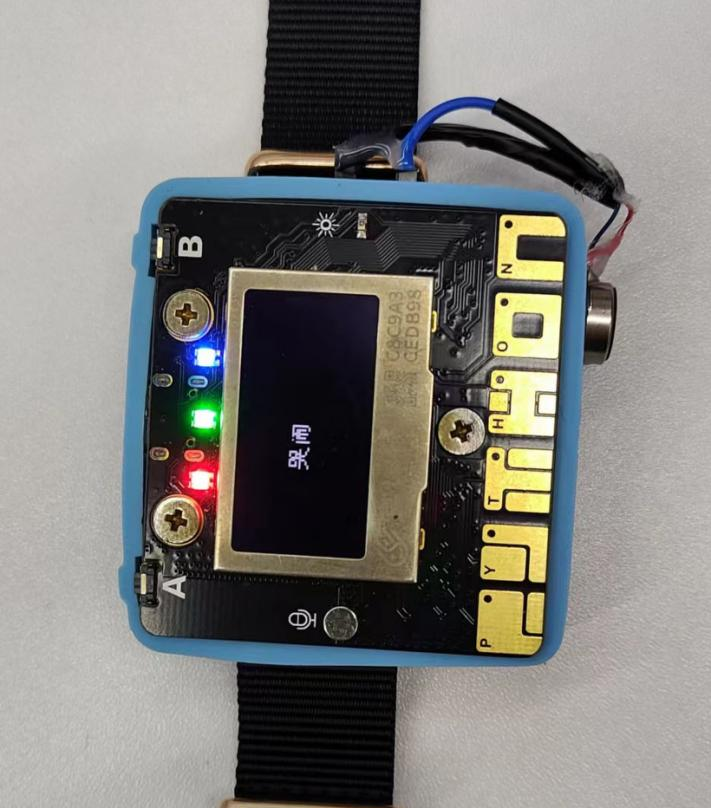
Smart Hearing Aid
Behind each creation lies a comprehensive honing of logical thinking, creativity, and a sense of responsibility.


03
Comprehensive Coverage: AI Learning Progressively Ignites Every Child’s Interest

The AI curriculum at Desheng School (Elementary Division) is not just theoretical; it covers all educational stages, ensuring every child has the opportunity to engage with and deeply understand AI technology. The school designs different levels of course content and practical activities for different age groups, allowing children to continuously stimulate their interest and enthusiasm for artificial intelligence through progressively deeper learning. This step-by-step teaching method allows children to gradually master AI knowledge in a relaxed and enjoyable atmosphere.
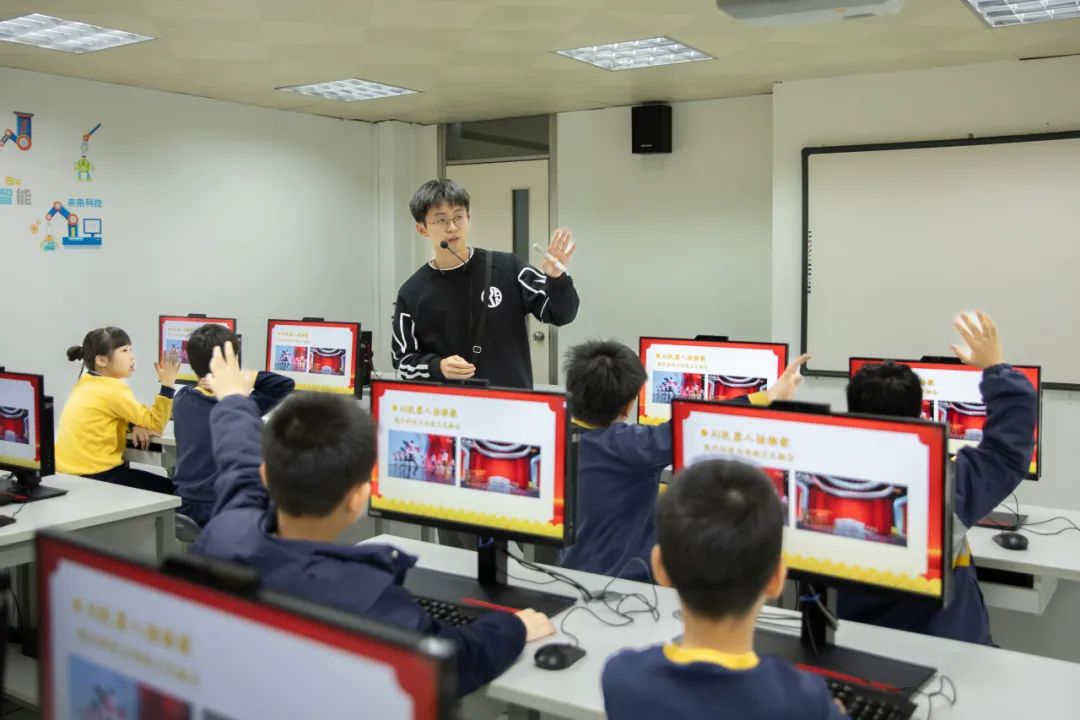
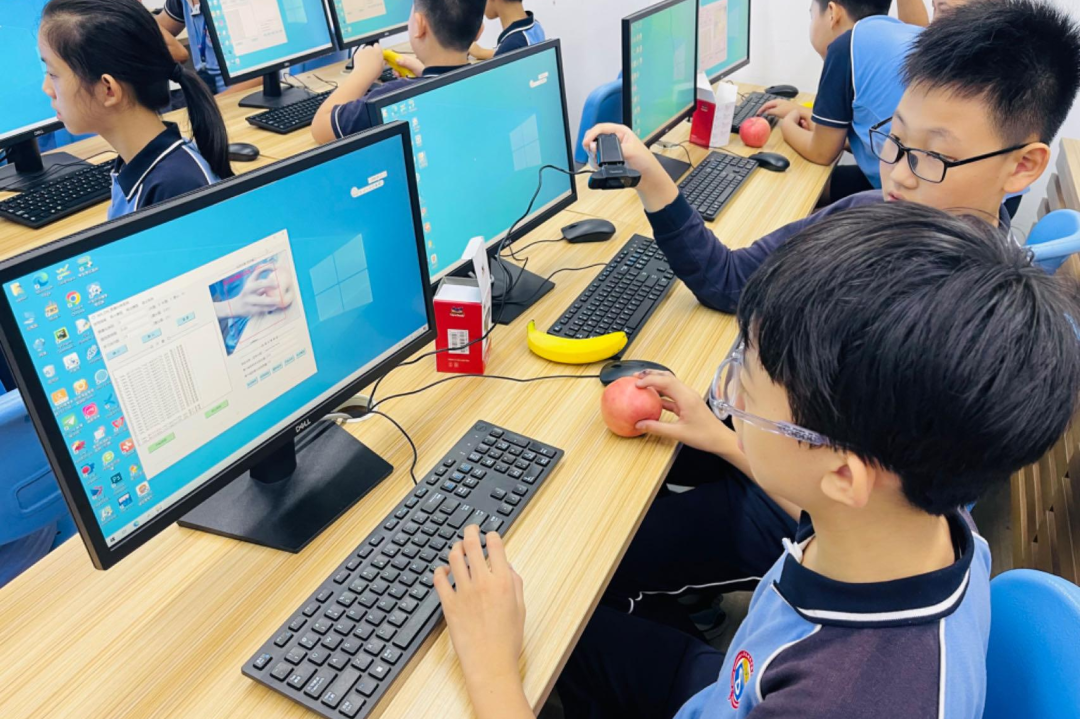
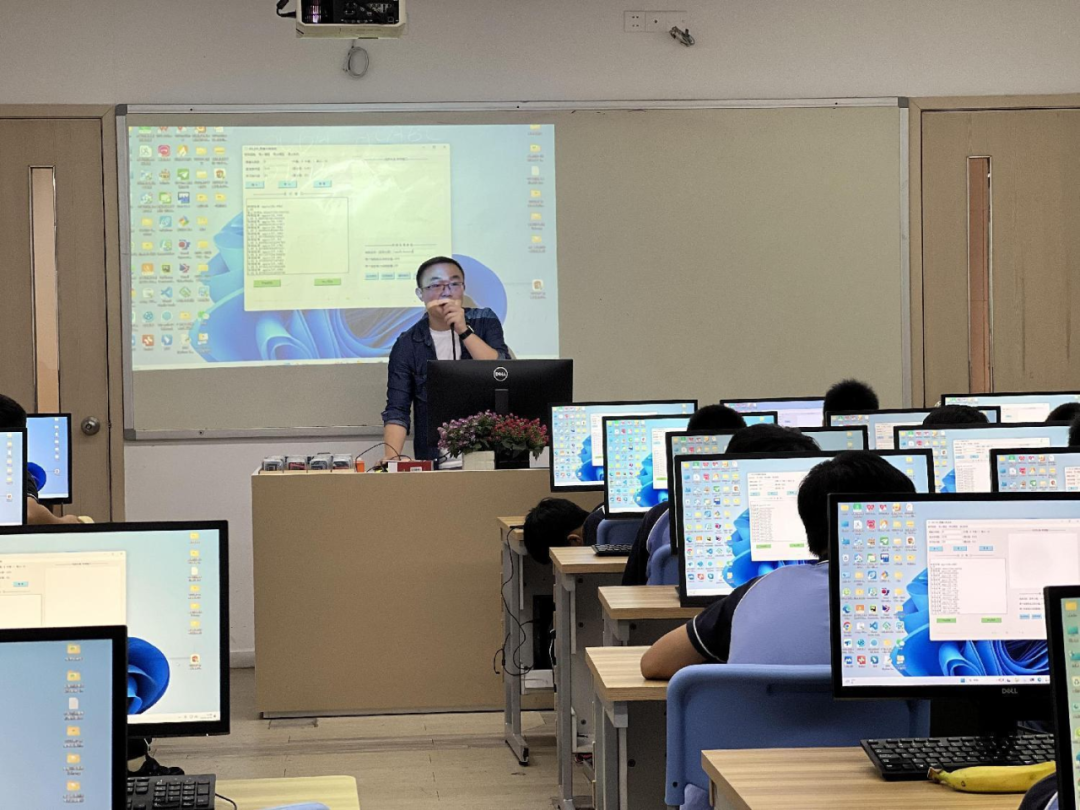
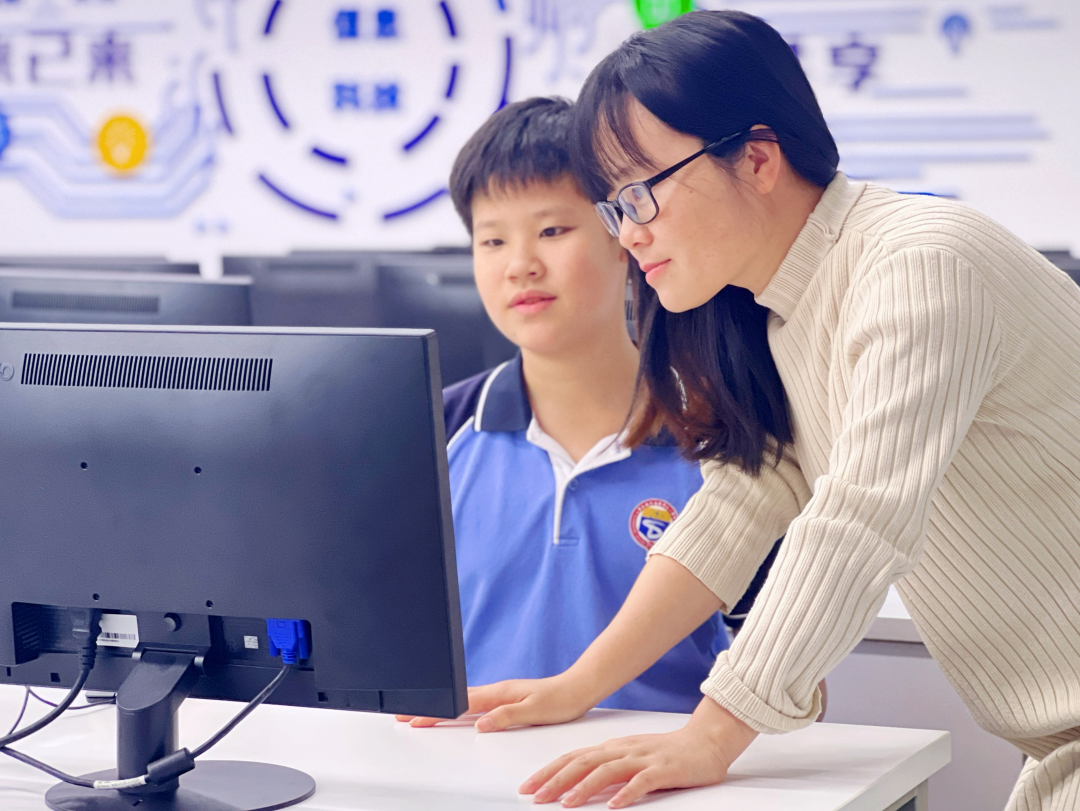
1-2 Grades “AI Perception Paradise”
Through the “Smart Enlightenment” theme, children use colorful apps to identify plants, converse with Tmall Genie, and experience facial clustering, feeling the charm of AI through fun interactions.
3-4 Grades “AI Creative World”
Advancing to graphical programming, designing voice-controlled lights, creating noise alarms, and even using AI visual sensors for facial recognition, making technology truly serve life.
5-6 Grades “AI Integrated Practice”
Challenging Python programming, training KNN models to recognize colors and voiceprints, developing “Intelligent Medicine Dispensers” and “Smart Agricultural Systems”, using algorithms to solve real problems.
From perception to creation, every step allows children to understand the logic and value of AI through practice.


04
Remarkable Achievements: Students Shine in Competitions, Defining “Future Power” with Strength

Desheng’s AI education not only takes root in the classroom but also shines brightly in competitions. These achievements are not only proof of technology but also the initial attempts of Desheng students to “change the world with AI”. The teachers and students of Desheng School in Shunde (Elementary Division) have won gold and silver medals in various national, provincial, and municipal information technology competitions, becoming pioneers in information technology education in the region.
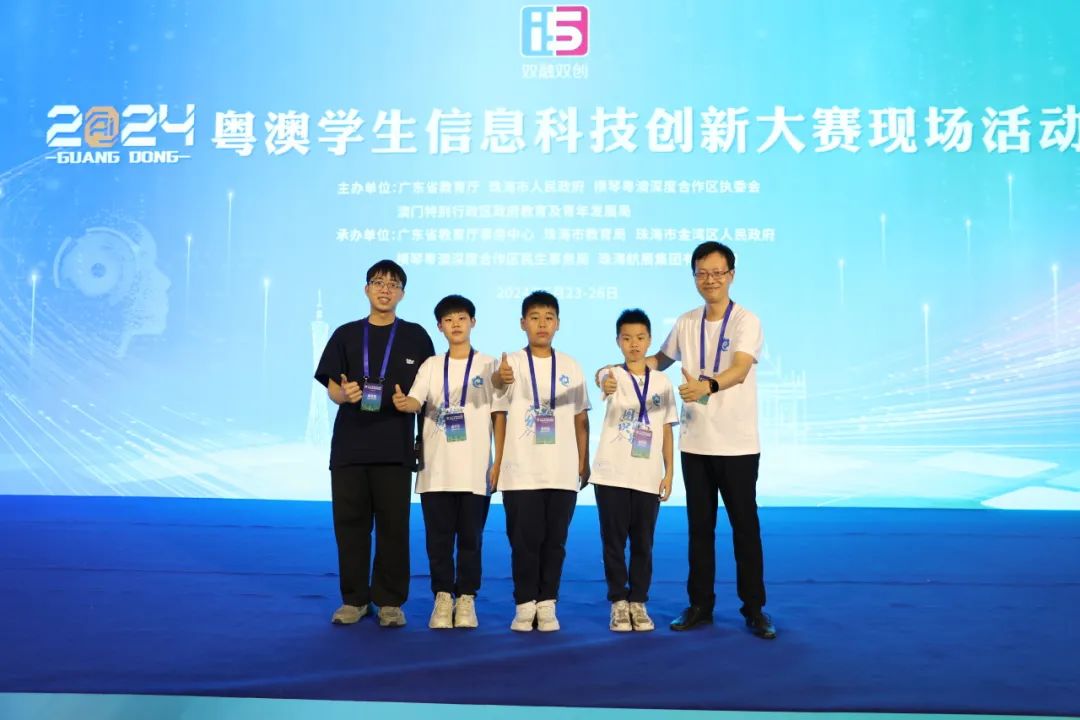
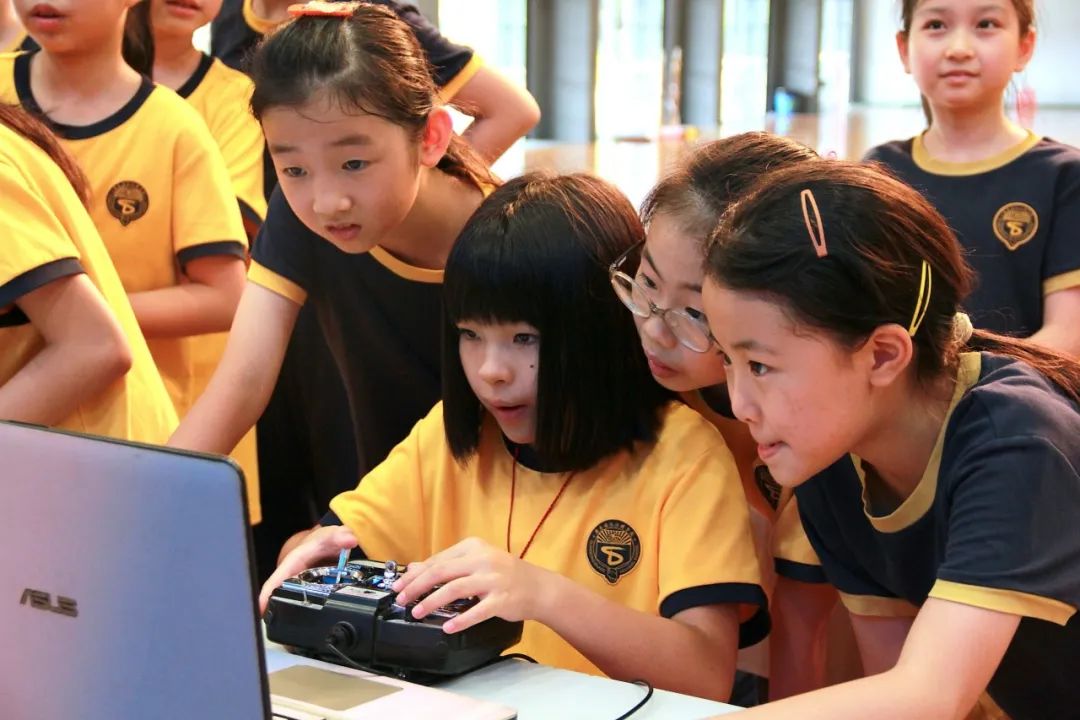
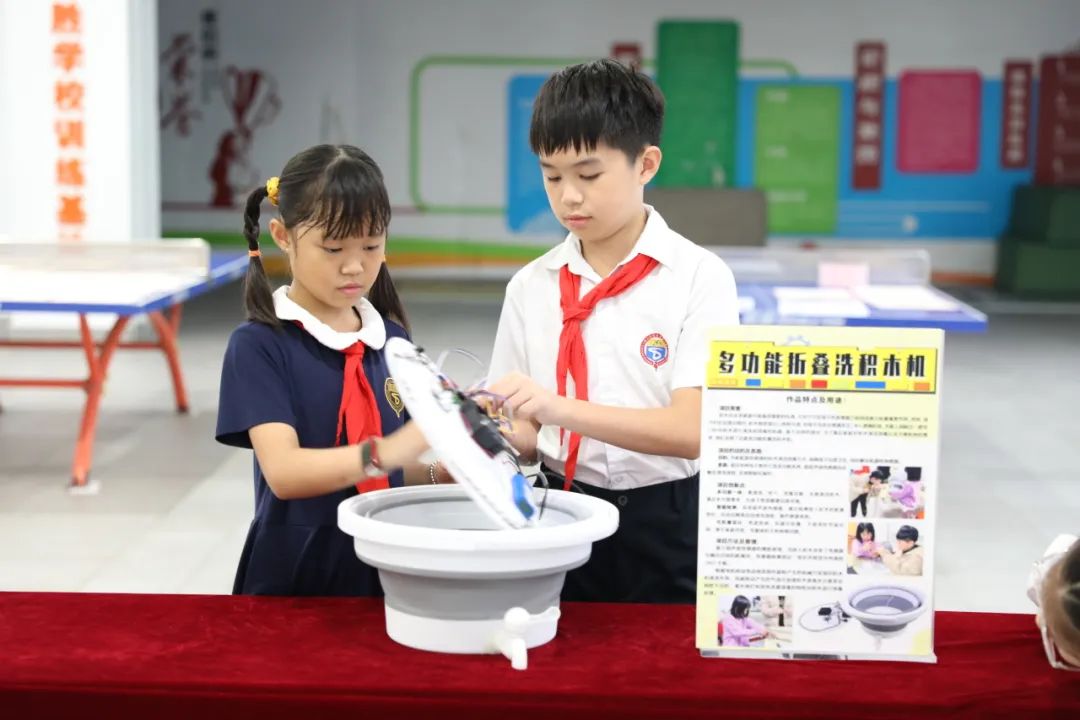
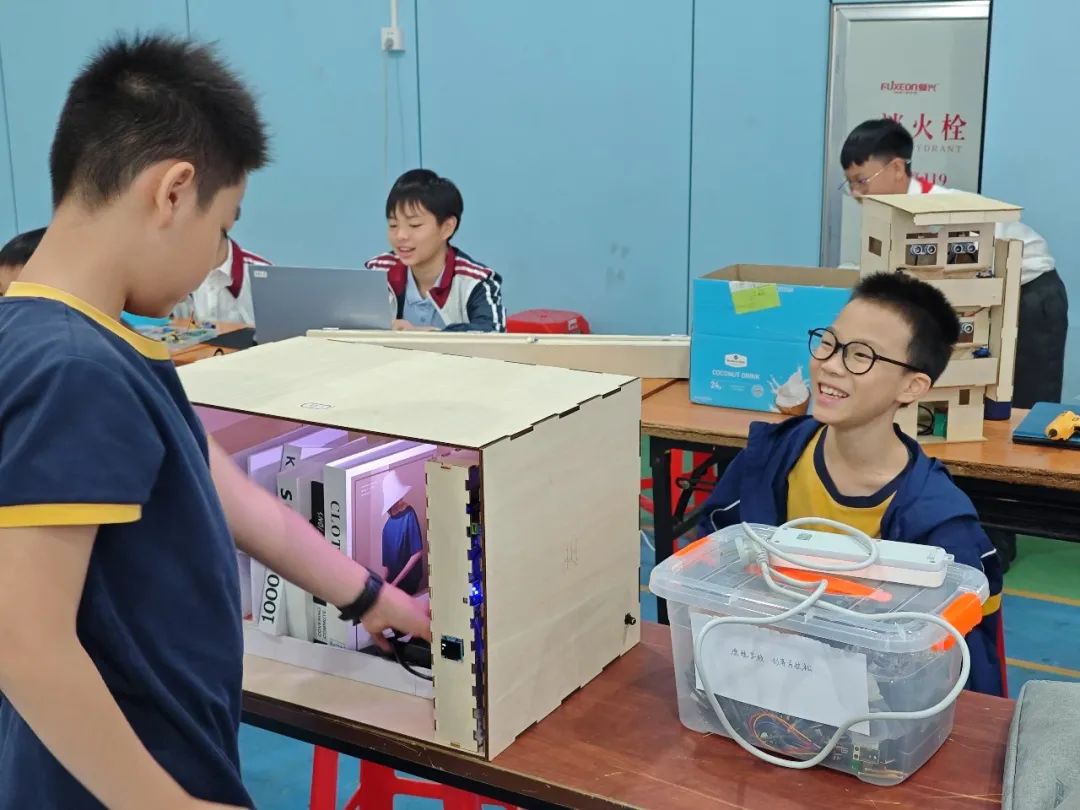
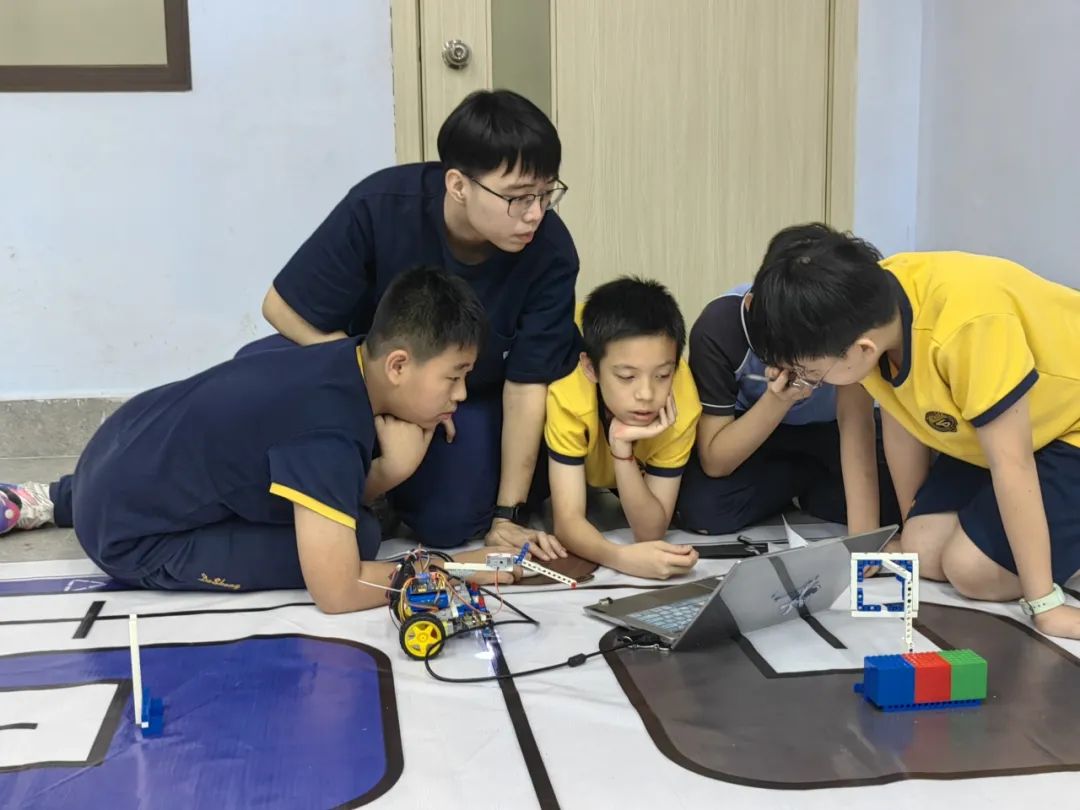

Teacher and Student Honors (Elementary Division)
Swipe up to view
School Honors (Partial):
-
Experimental Base for the China Youth Maker Olympic Series Activities
-
Excellent Demonstration School for National Youth Science Investigation and Experience Activities
-
Innovation Education Base School for the Primary and Secondary School Innovation and Creation Education Plan
-
Guangdong Province Youth Science and Technology Education Innovation Team
-
Foshan Primary and Secondary School Subject Education Research Base
-
Foshan Primary and Secondary School “Talent Plan” Base School
-
Outstanding Organization Unit of the 40th Foshan Youth Science and Technology Innovation Competition
Teacher and Student Honors (Partial):
-
Teacher Liang Shirui was awarded the 2019 National Aerospace Excellent Science and Technology Teacher and represented Desheng at the Wenchang Launch Center to participate in the National Aerospace Characteristic School Seminar; invited to witness the successful launch of China’s lunar exploration project “Chang’e 5”.
-
Teacher Guo Liping’s guided project “Decoding Baking Soda” won first prize in the Guangdong Youth Science and Technology Innovation Competition, achieving first prize in the provincial science and technology innovation competition for five consecutive years.
-
Teacher Li Junjie was recognized as the host of the Guangdong Province Primary and Secondary School Science and Technology Education Famous Teacher Studio.
-
In 2020, student Zhou Yuanyuan won first prize in the Guangdong Province Primary and Secondary School Labor Education and Information Literacy Improvement Practice Activity, and shared programming works in the National Primary and Secondary School Computer Production Activity, receiving the “Exchange Star” title.
-
In 2020, student Zhang Huan won first prize in the Guangdong Province Primary and Secondary School Labor Education and Information Literacy Improvement Practice Activity.
-
In 2021, student Li Dafeng won first prize in the Guangdong Province Primary and Secondary School Labor Education and Information Literacy Improvement Practice Activity.
-
In 2021-2022, student Chen Junhong won first prize in the “National Primary and Secondary School Information Technology Innovation and Practice Competition” finals for AI innovative programming.
-
In 2022, students Yuan Xuze and Chen Junhong won first prize in the Guangdong Province Primary and Secondary School Labor Education and Information Literacy Improvement Practice Activity for AI applications.
-
In 2023, students Peng Hao and Huo Junqi won second prize in the Guangdong Province Primary and Secondary School Labor Education and Information Literacy Improvement Practice Activity for creative manufacturing projects.
-
In April 2024, Desheng students performed excellently in the Foshan AI Triathlon, all winning city first prizes, dominating the competition.
-
In April 2024, during the Foshan Primary and Secondary School AI Teaching Achievement Exhibition and Exchange Activity, the Desheng Science and Technology Elite (12 students from elementary, middle, high, and international divisions) received recognition from Foshan judges for their project themes, which are proposed to be sent to Guangdong Province for evaluation.
-
In August 2024, Zheng Junyan and Huang Yunfei won first prize in the 2024 Guangdong-Macao Student Science and Technology Innovation Competition for creative manufacturing projects.
-
In December 2024, Wang Chuyao and Qin Ziyi won the special prize in the 8th Shunde District Science and Technology Innovation Festival Smart Transportation Challenge.



In the AI classroom at Desheng School (Elementary Division), knowledge is not the endpoint, but the starting point for exploring the future. Children weave dreams with code, perceive the world with sensors, and solve problems with algorithms — here, every child is a “little scientist”, and every practice empowers the future. Isn’t this the educational model we aspire to?
Desheng Education allows the seeds of AI to take root in childhood, waiting for the future to bloom.
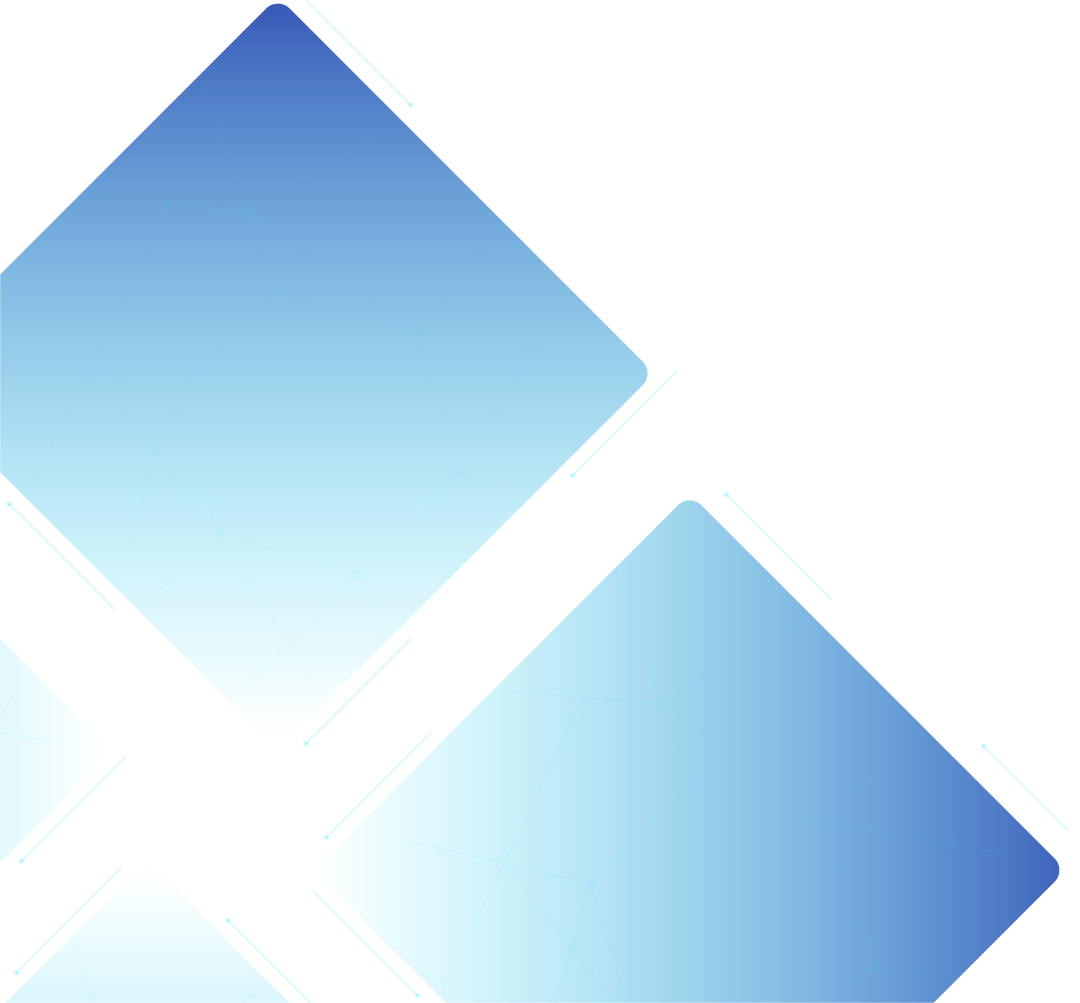

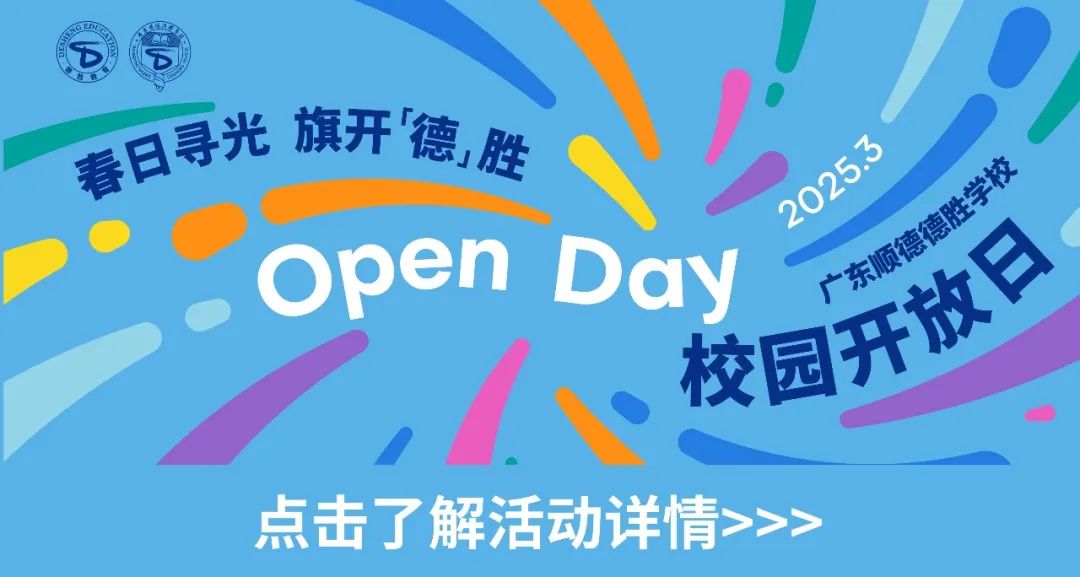
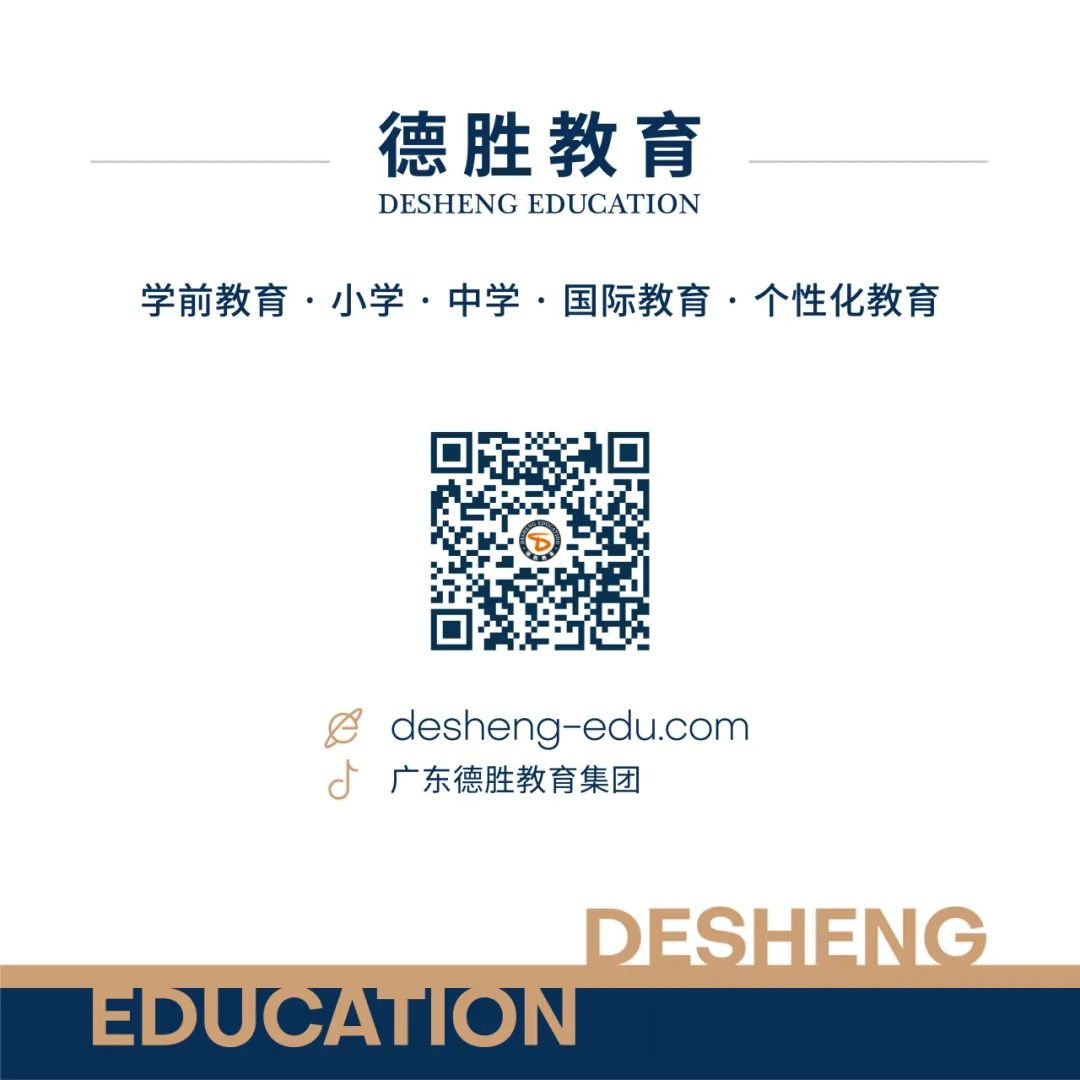
Copyright Statement: This article was written and edited by the Guangdong Desheng Education Group Office, please indicate the source when reprinting.